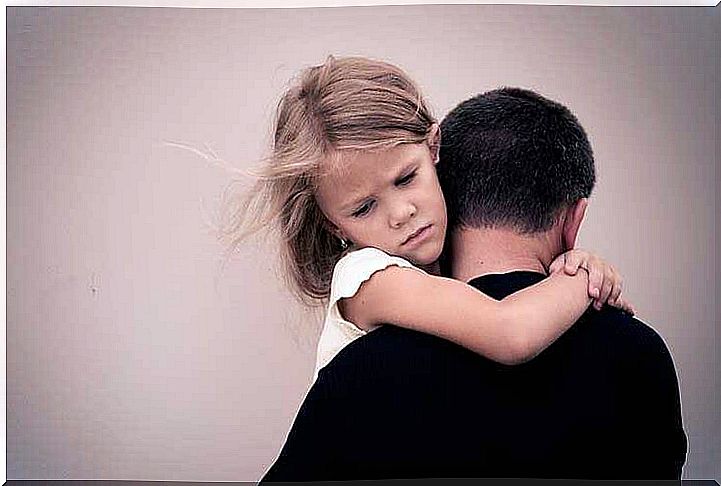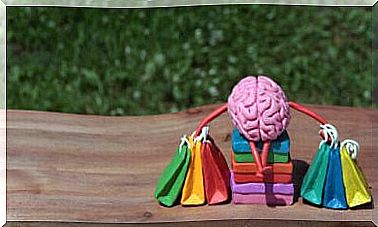Teach Your Kids To Tolerate Frustration

We are all familiar with one of the most uncomfortable emotions there is, but also one of the most common: frustration. Frustration appears when a desire, a dream, a goal or an expectation cannot be achieved, at least for the moment, no matter how hard you try. It’s the clearest way the world has to make us understand that, unfortunately, it’s not always a fair place.
On many occasions, because we don’t like to see our children sad, they don’t actually experience frustration at home. It’s very common for us to let them win while we’re playing them, because we think that having to deal with the thrill of small losses and the frustrations inherent in them will only make them feel a momentary sadness. In this way, we do our best to avoid it.
However, the emotional reactions established in childhood form a large part of a person’s emotional future. That is, if today we are in charge of negative emotions, tomorrow we will reduce the incidence of problems arising from these types of emotions.

Why is it important to educate in tolerance and frustration?
Why is education in tolerance and frustration so important? Because frustration is one of the most powerful emotions that affects the construction of a child’s self-esteem, the one that makes him consider his value and shows him what aspects he can improve. Therefore, learning to tolerate frustration from an early age allows children to begin to build the foundations of their resilience.
This means that the negative emotions children feel when faced with frustration will not dominate their lives. It means that these situations that a child goes through can make him or her achieve things someday, and they will rely on strategies they learned at home if these emotions or situations occur.
Also, if your kids don’t have a tolerance for frustration when they grow up, those activities where victory isn’t certain and that require effort become a threat rather than a challenge. Therefore, they tend to fail in these types of activities and focus more on others that, although they may be more dangerous, such as drug use, provide them with short-term reinforcements.
All of this means that there is no need to reinforce frustrating situations, but neither should we prevent children from facing them and measuring their strength with them. We simply have to let the frustrations happen in family games, sports, or any other activity, and when they come, accompany them in this most unpleasant emotional moment: recognizing and validating the emotion first and helping to generate alternative solutions later.

Steps to teach your kids to tolerate frustration
To teach a child to tolerate frustration, you can take the following steps:
- Leading by example: there is no better way to learn about “emotional expression” than to see how parents verbalize the feelings that arise out of frustration.
- Not giving kids everything ready: If we make it easy for our kids and don’t allow them to face their challenges alone, it’s hard for them to make mistakes and learn from their mistakes. Keep in mind that in your life you will not be able to keep up with them every day and prevent them from making their own blunders.
- Respect your times and your ways: Your child may do things very slowly or slowly and wrongly, but it’s his way of growing and learning. You have to respect his actions, even if he messes up or doesn’t do it the way you would. With this, you are allowing him to experience the error as something positive and you are developing in him the perception of accomplishment and personal competence, which are essential for the development of solid self-esteem.
- Do not give in to your tantrums, but also do not cancel or minimize your crying: in many cases, frustrating situations give rise to tantrums, especially in younger children. If parents give in to these donkeys, children will learn that this is the most effective way to solve problems. Also, crying is a necessary, positive response. On many occasions, crying is a preliminary step to neutralize impotence and to feel more prepared for further learning.
- Transforming frustrations into learning: problematic situations are an excellent opportunity for children to learn new things and retain them, because frustration is a powerful engine to generate alternatives if it does not surrender to the negative emotions it generates. This way, she can face the problem on her own when it re-appears.
- Teach them to be perseverant: perseverance is essential to overcome adverse situations. If our children learn that being constant can solve many of their problems, they will know how to handle frustration at other times. But this perseverance does not have to be immediate or too insistent, we can teach to try to do the task again once the child is calmer.
- Teach them to ask for help when they need it: because we do not walk alone in this life, but we can learn from others. But you have to let them learn from you, so that when you’re not around, they can find solutions on their own.
In short, frustration can be a positive emotion if we know how to manage it, as it has an important motivational value for those who do not let themselves be carried away by the negative emotions it produces. Therefore, as we are all going to experience frustrations in our lives, whether to a greater or lesser extent, teaching our children this emotion and its possibilities will help them to triumph in the future and to develop an emotionally healthier personality.









